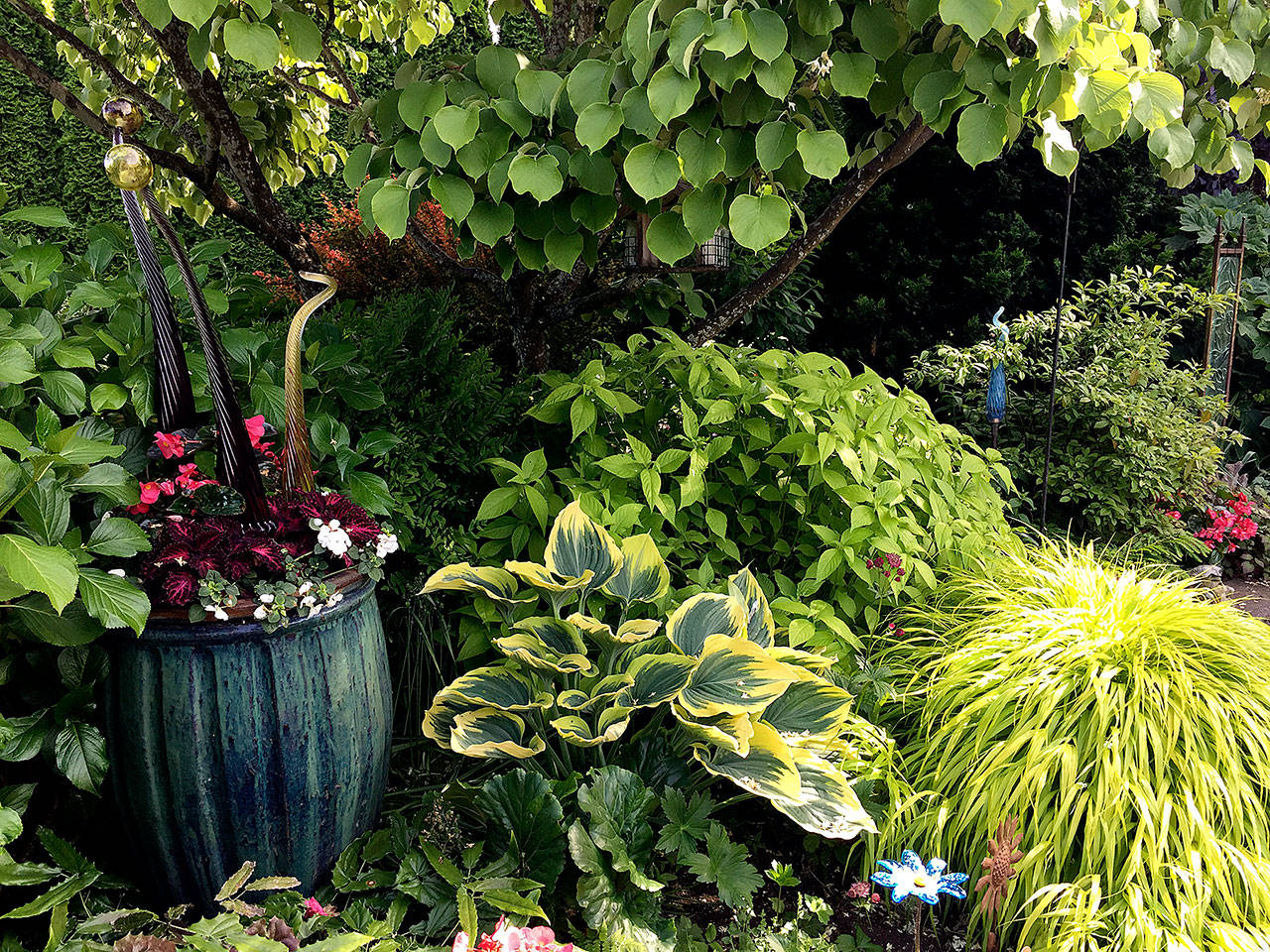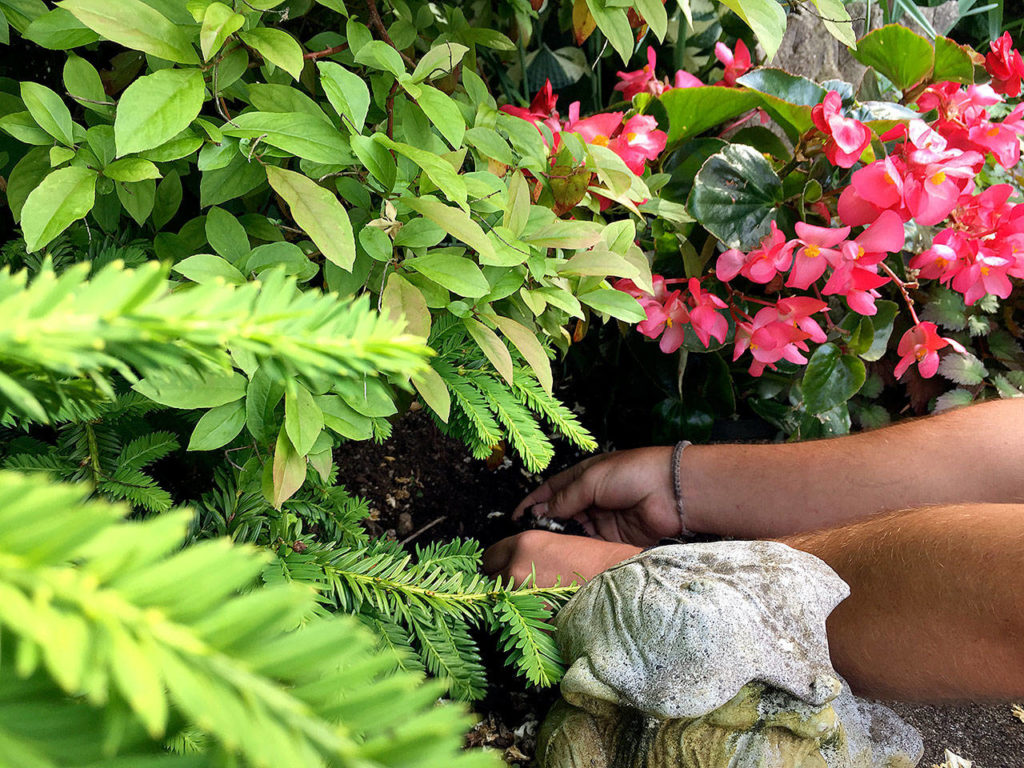I have often thought about what it is about some people that makes them good gardeners and what it is about others that makes them just the opposite.
Like child prodigies, some individuals are gifted with the talents required to allow them to excel at a certain skill, but for the rest of us, we have to spend a lifetime learning how to succeed. So, what is it that goes into making a gardener successful?
First of all, I think a person has to have an above normal interest — or dare I say a passion — for gardening to be successful. We have to pay attention to our gardens and check in on our plants on a regular basis (more than once a month), or they will struggle to thrive.
It is no different than raising a child or caring for a pet. Pets and children need daily attention and, fortunately for them, they can verbalize their needs. Plants, on the other hand, cannot verbalize but rather have other methods of communicating to us. The better we can recognize and understand their messages, the more successful we can be.
Three excellent resources come to mind for gardeners who want to develop “green thumbs,” or a knack for growing plants. Washington State University puts out a publication that is used in its Master Gardener program called the “Sustainable Gardening Handbook,” which is a practical reference for anyone interested in learning more about gardening.
The “Sunset Western Garden Book” is also a top-notch garden bible for dedicated gardeners. If you are mostly into edibles, the “Northwest Maritime Garden Guide” by Seattle Tilth is the ultimate reference for growing veggies in the Northwest. All of these publications contain the basics for successful gardening and will go a long way in helping you develop a green thumb.
Good soil: At the root of all successful gardeners is the acknowledgement that a healthy soil will produce a healthy plant. Unfortunately, many of us in the Northwest are forced to garden in undesirable soil conditions. The solution to this dilemma is an annual application of organic matter in the form of compost.
Compost can either be worked into the soil with a spade or rototiller or placed on the surface as a mulch. Either way, it needs to be replaced every year. Compost does amazing things to our soil on a biological, chemical and physical level.
One of the biggest benefits to the gardener is that it acts as a buffer for our inattention by retaining moisture in sandy soils and improving drainage in heavy clay soils. In essence, soils that are fortified with compost will put up with more abuse — and that can translate into success for you.
Good fertilizer: In addition to organic matter, successful gardens need food (not unlike kids and pets) on a regular basis to grow to their utmost potential. The best way to add this food is in a slow release or long-lasting form, which can either be from an organic source, a synthetic source or a blend of the two.
Cheap fertilizers that give you a quick response will, in the long run, stress plants and ruin soil biology, eventually producing poor results. Long-lasting, organic fertilizers will act as a buffer for our neglect and continue to feed our plants when we are not thinking about them.
Good watering: Watering is another critical chore that separates a green thumb from a brown thumb. Plants will usually tell us when they are thirsty, and learning to recognize those signs is very important. Generally speaking, plants like an inch of water a week to be happy. They obviously get far more than that in the winter and far less in the summer — so it is our job to help moderate these extremes.
Believe it or not, simply adding compost to our soils goes a long way in helping to maintain the proper level of moisture in the ground. The art of watering can be complicated and depends on many factors, such as the kind of soil, the kind of plants (shallow versus deep-rooted) and the application technique. I will spend more time on this very important aspect of successful gardening, so be on the lookout for a follow-up column.
There are, of course, other factors that contribute to being a green-thumb gardener — such as knowing when to prune, how to control weeds, what to plant where and how to manage pests — but I think the most important things to focus on are soil management, proper fertility and good watering skills. If you can do that, then you will develop a green thumb.
Steve Smith is owner of Sunnyside Nursery in Marysville and can be reached at info@sunnysidenursery.net.
Gardening 101
Attend a free class on all the basics on how to be a successful gardener at 10 a.m. June 17 at Sunnyside Nursery, 3915 Sunnyside Blvd., Marysville. For more information or to sign up, visit www.sunnysidenursery.net/classes.
Talk to us
> Give us your news tips.
> Send us a letter to the editor.
> More Herald contact information.




























